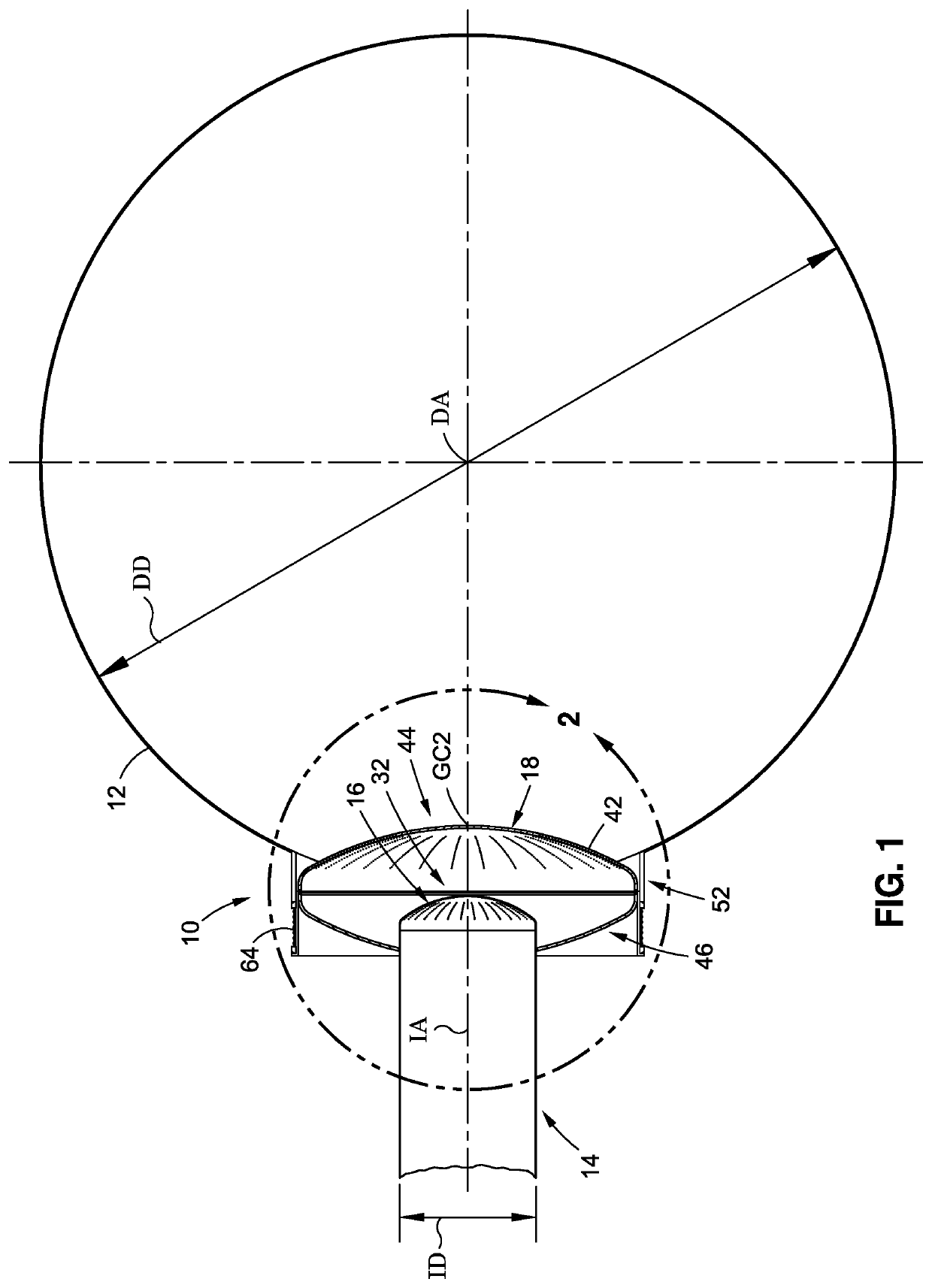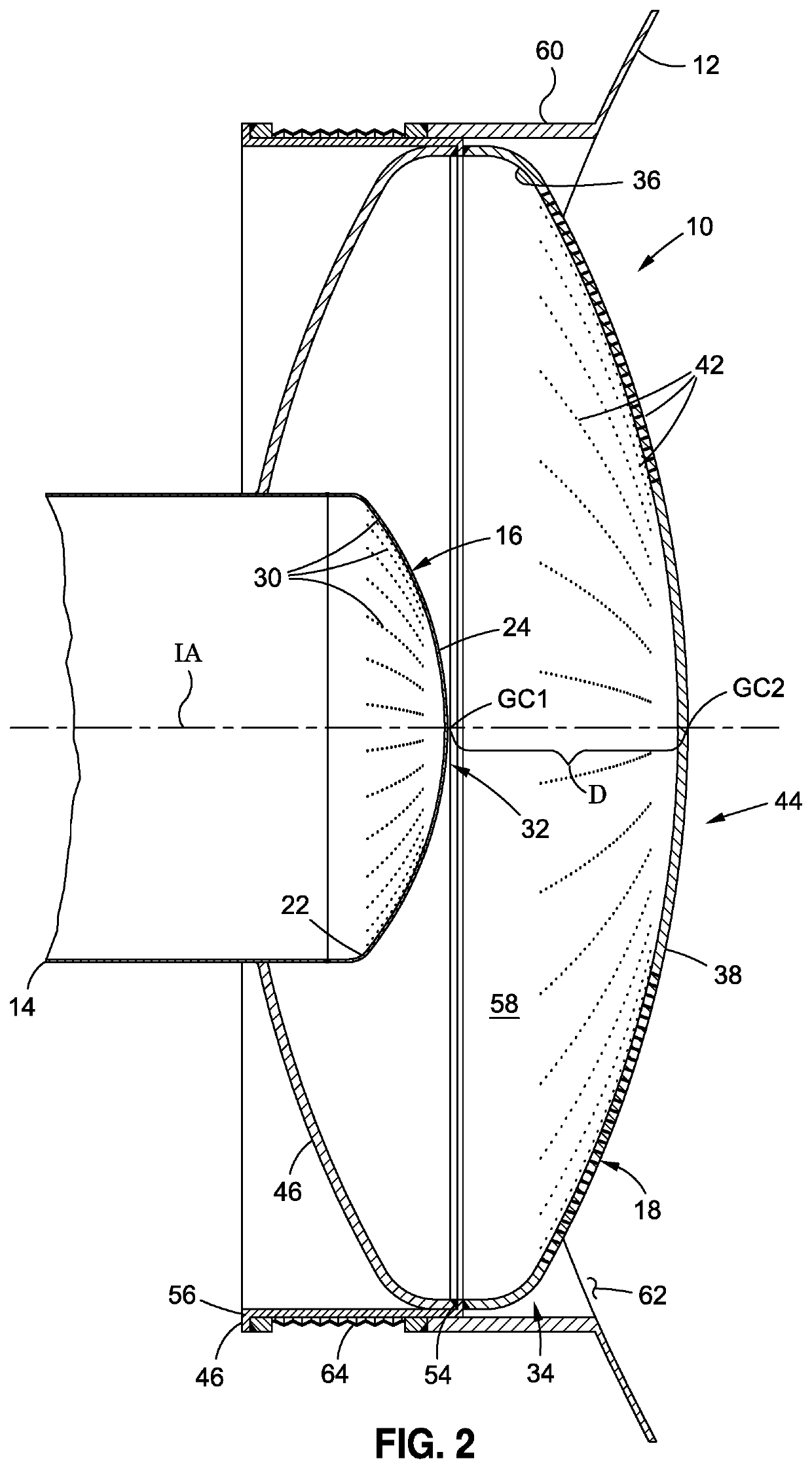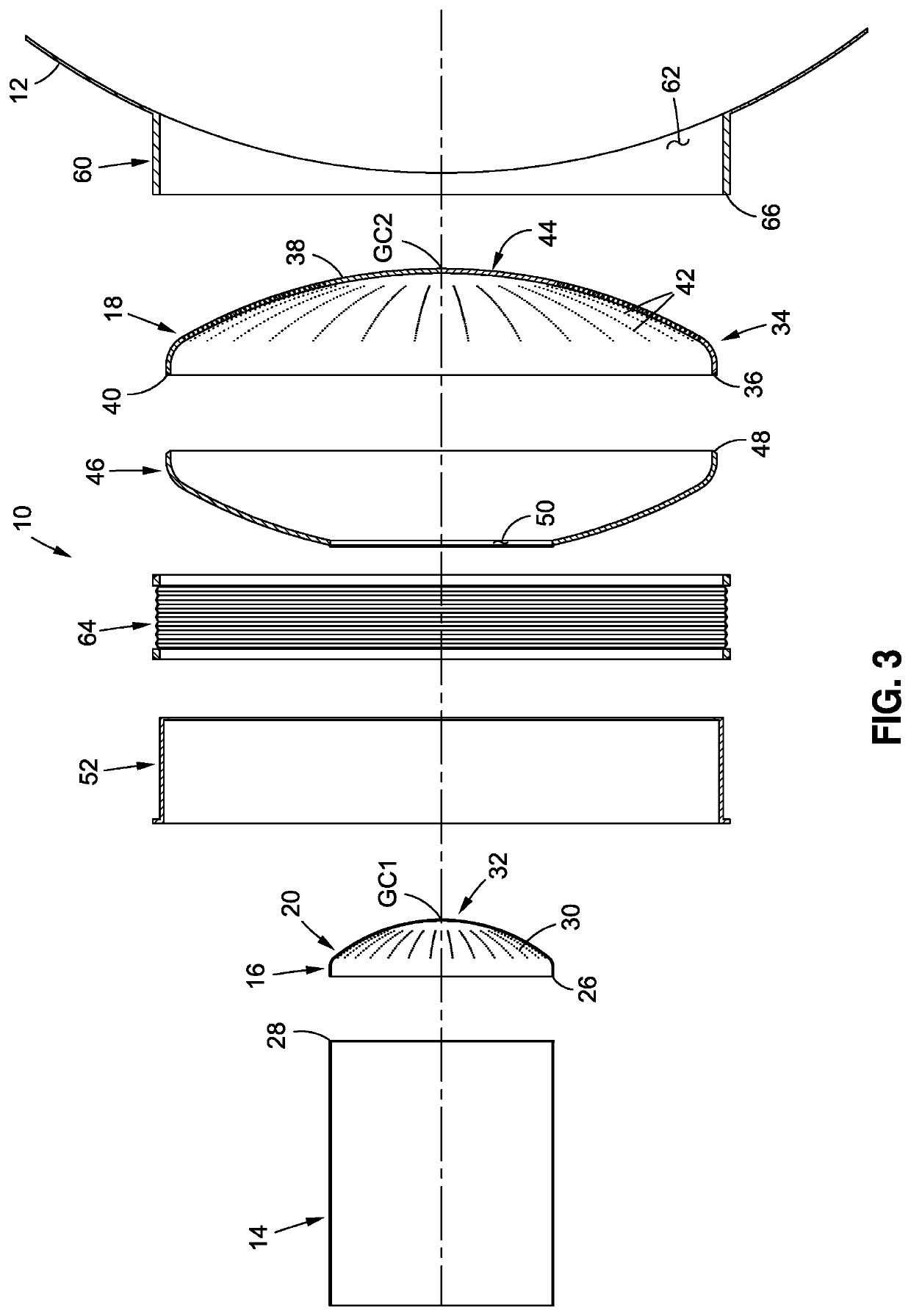Compact multi-stage condenser dump device
a dump device and multi-stage technology, applied in steam/vapor condensers, steam engine plants, lighting and heating apparatuses, etc., can solve the problems of high noise levels at the acc duct surface that can generate unacceptable noise levels, plant operations with extensive noise levels may face financial penalties, and achieves reduced noise and vibration, minimizes projection, and reduces noise and vibration.
- Summary
- Abstract
- Description
- Claims
- Application Information
AI Technical Summary
Benefits of technology
Problems solved by technology
Method used
Image
Examples
first embodiment
[0037]Referring now to the drawings wherein the showings are for purposes of illustrating preferred embodiments of the present disclosure only, and not for purposes of limiting the same, FIGS. 1-4 depict a dump device 10 constructed in accordance with the present disclosure. The dump device 10 is particularly suited for operative integration between and mounting to a dump tube or duct 12 (e.g., an air cooled condenser duct) and a corresponding steam inlet pipe 14 as allows the dump device 10 to facilitate the discharge of steam from the steam inlet pipe 14 into the duct 12. As seen in FIG. 1, the duct 12 will typically be cylindrically configured, having a generally circular cross-sectional configuration and defining a duct axis DA, while further being provided with an inner duct diameter DD in the range of about 16 to 24 feet. Similarly, the steam inlet pipe 14 will typically be cylindrically configured, having a generally circular cross-sectional configuration and defining an inle...
second embodiment
[0062]Referring now to FIGS. 9, 10 and 11, there is shown a dump device 110 constructed in accordance with the present disclosure. Many of the structural and functional features of the dump device 110 are the same as those described above in relation to the dump device 10. Thus, only the structural distinctions between the dump devices 10, 110, and the distinctions between the ancillary structures used to facilitate the cooperative engagement thereof to the duct 12, will be described in more detail below with specific reference to FIGS. 9-11.
[0063]In greater detail, one of the primary distinctions between the dump devices 10, 110 lies in the first stage 116 of the dump device 110 comprising a portion of the steam inlet pipe 14 in combination with the first head 120 which is attached to the distal end of the steam inlet pipe 14 defined by the distal rim 28 thereof. In the dump device 110, the first head 120 of the first stage 116 is, like the above-described first stage 20 of the dum...
third embodiment
[0067]Referring now to FIGS. 12 and 13, there is provided generally schematic depictions of a dump device 210 constructed in accordance with the present disclosure. Whereas the dump devices 10, 110 are each generally two-stage versions, the dump device 210 is a three-stage version essentially comprising a meld of various structural features of the dump devices 10, 110, and the arrangements shown in FIGS. 1-3 and 9-11, as elaborated upon in more detail below.
[0068]In general terms, the dump device 210, from a starting structural standpoint, largely mimics the structural and functional features of the dump device 10 and those structural features used to facilitate its cooperative engagement to both the steam inlet pipe 14 and duct 12. However, for purposes of the description below, what is described as the second stage 18 above in the dump device 10 is characterized as the third stage 18′ in the dump device 210, though the second stage 18 and third stage 18′ are, in large measure, str...
PUM
 Login to View More
Login to View More Abstract
Description
Claims
Application Information
 Login to View More
Login to View More - R&D
- Intellectual Property
- Life Sciences
- Materials
- Tech Scout
- Unparalleled Data Quality
- Higher Quality Content
- 60% Fewer Hallucinations
Browse by: Latest US Patents, China's latest patents, Technical Efficacy Thesaurus, Application Domain, Technology Topic, Popular Technical Reports.
© 2025 PatSnap. All rights reserved.Legal|Privacy policy|Modern Slavery Act Transparency Statement|Sitemap|About US| Contact US: help@patsnap.com



